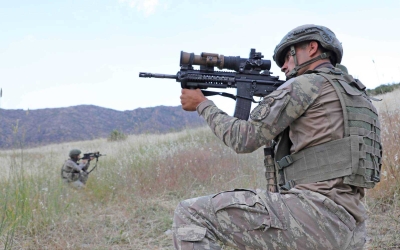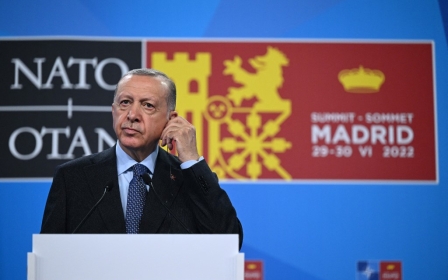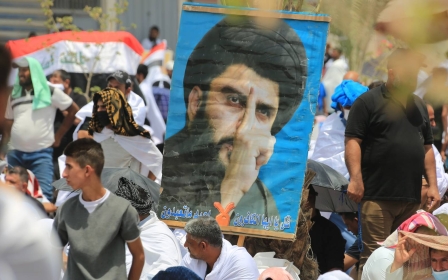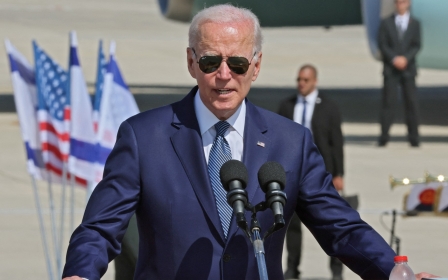Iraq: Eight killed by suspected Turkish shelling on popular tourist resort in Kurdistan
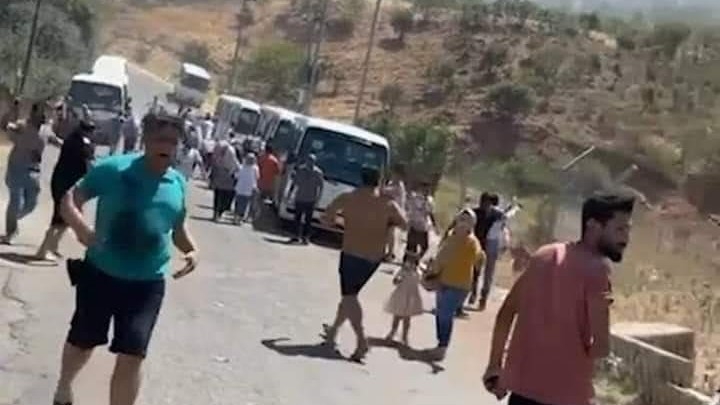
At least eight people have been killed and dozens wounded in a suspected Turkish artillery attack on a tourist resort in the Duhok province of Iraq's semi-autonomous Kurdistan region.
State media said all of those killed by the "fierce artillery bombing" were tourists. They included two children, three men and three women. Though the Iraqi government has blamed Turkey for the attack, Ankara said Kurdish militants were responsible.
The raid took place at the Barkh resort in Duhok’s Zakho district, Kurdish MP Chiya Hamid Sharif told Middle East Eye.
'Turkey is bombing this area to make people scared, this has been happening for years'
- Chiya Hamid Sharif, Iraqi Kurdish MP
The area is a popular destination for domestic Iraqi tourists, with many still in the area following Eid festivities two weeks ago. Qasarok and the Sharanish waterfall draw visitors from around the country.
"Every day, thousands of tourists from the south of Iraq, and Kurds travel to this area," Sharif, who is from Zakho, told MEE.
"But every time, Turkey bombs this place without any justification. Turkey is bombing this area to make people scared, this has been happening for years."
Sharif said bombing continued even after the resort was hit and people were afraid to go to the area. He visited Zakho hospital after the attack, with medics telling him that eight people were killed and 24 wounded.
Iraq's Prime Minister Mustafa al-Kadhimi accused Turkey of carrying out the attack, calling it a "blatant and flagrant violation of Iraqi sovereignty and the lives of the Iraqi people".
"This brutal attack underscores the fact that Turkey ignored Iraq's continuous demands to refrain from military violations against Iraqi territory and the lives of its people."
Kadhimi has ordered an immediate investigation and dispatched the foreign affairs minister, among several other senior officials, to visit the wounded and follow up on the incident, according to Iraq's Security Media Cell.
Turkey has been waging an offensive against the Kurdistan Workers’ Party (PKK) militant group and its allies in the mountains of northern Iraq since April.
The Turkish foreign ministry released a statement denying responsibility, saying Ankara was "against all kinds of attacks targeting civilians," the statement said, "[Turkey] is ready to take all steps to reveal the truth."
Iraqi protesters reportedly forced the Turkish visa office to close in the Najaf governorate, ahead of further protests at the Turkish consulate in Basra.
'Far away from PKK fighters'
Graphic footage posted online showed locals screaming and scrambling to escort wounded people to safety.
Sharif said the resort in Zakho was a civilian place with no armed groups, “far away from PKK fighters”.
“We hope that this violence will end, we want peace and a new peace process in Turkey, and this conflict should be outside of the borders of the Kurdistan region," he said.
"I personally condemn these attacks, and I want these attacks to stop.”
The assault comes two days after local activists reported that Turkish aircraft targeted areas north of Zakho near the Bersawa displacement camp hosting Yazidi families.
In April, Turkey launched an air and ground operation against the PKK, targeting facilities and ammunition stores in northern Iraq near the Turkish border.
Four Turkish soldiers were killed and 45 PKK members have been “neutralised” during the offensive, dubbed Operation Claw Lock, according to the Turkish government.
The offensive came after a series of Turkish military operations that established nearly 20 military outposts in northern Iraq, and pushed the PKK away from Turkey's border in recent years.
Turkey has had outposts in the region since the 1990s, but Ankara now says it aims to completely remove PKK fighters and their allies from the mountainous territory, which is littered with caves and entrenchments.
Middle East Eye propose une couverture et une analyse indépendantes et incomparables du Moyen-Orient, de l’Afrique du Nord et d’autres régions du monde. Pour en savoir plus sur la reprise de ce contenu et les frais qui s’appliquent, veuillez remplir ce formulaire [en anglais]. Pour en savoir plus sur MEE, cliquez ici [en anglais].


